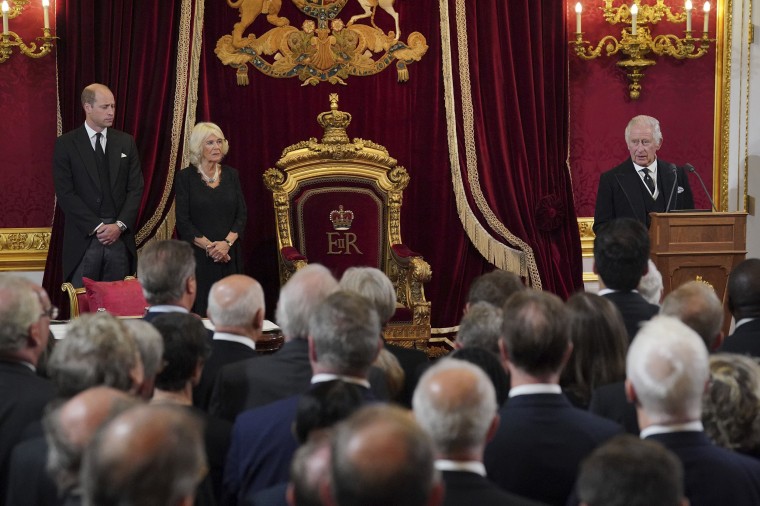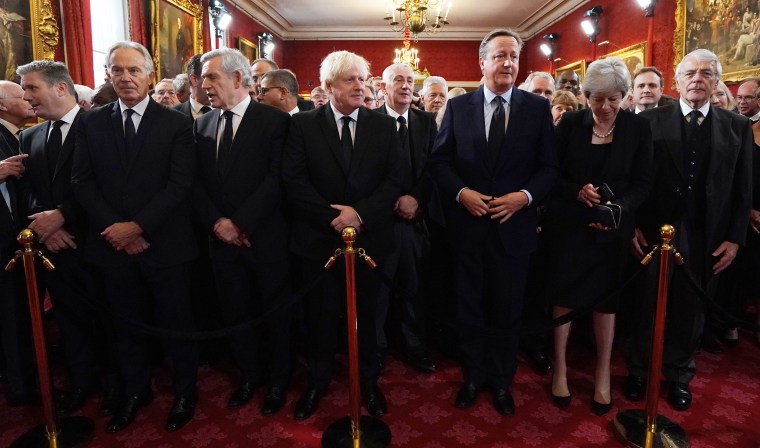The former Prince of Wales became King Charles III immediately upon the death of Queen Elizabeth II Sept. 8, but on Sept. 10, he was formally declared head of state.
Charles' role as king was proclaimed during a meeting of the Accession Council at St. James' Palace in London. He also confirmed again that he will use the name King Charles III.
Immediately after the ceremony, which was televised for the first time in history, Charles spoke, offering a personal declaration. First, he thanked the world for their sympathy and support after the death of his mother.

"I know how deeply the entire nation — I think I may say the whole world — sympathize with me in the irreparable loss we’ve all suffered, which is the greatest consolation," he said.
King Charles III then addressed Queen Elizabeth's 70 years on the throne, the longest time a British monarch has reigned.
"To all of us as a family, as to this kingdom, and the wider family of nations ... my mother gave an example of lifelong love and of selfless service," he said. "My mother’s reign was unequaled in its duration, its dedication and its devotion. Even as we grieve, we give thanks to this most faithful life."

"I'm deeply aware of this great inheritance and of the duties and heavy responsibilities of sovereignty, which have now passed to me," King Charles continued. "In taking up these responsibilities, I shall strive to follow the inspiring example I have been set in upholding constitutional government and to seek the peace, harmony and prosperity of the peoples of these islands and of the Commonwealth realms and territories throughout the world."
King Charles also took a moment to acknowledge Camilla, the queen consort.
"In all this I am profoundly encouraged by the constant support for my beloved wife," he said.
The new king then spoke and signed two formal oaths, confirming him as the leader of the United Kingdom. Those documents were then signed by members of the privy council, including Camilla and his son William, Prince of Wales.
After the ceremony was concluded, a fanfare was sounded, and a Garter King of Arms, a heraldic position that has existed in the royal household since 1484, proclaimed Charles the new king from a balcony of St. James' Palace.
The newly-titled national anthem "God Save the King" was played by the royal band following the proclamation.
Elsewhere in London, the completion of the ceremony was honored with a 41-gun salute at Hyde Park and a 62-gun salute at the Tower of London. Similar proclamations were read in parts of Ireland, Scotland, Wales and other British territories.
Later in the week, the queen's casket will be moved from Scotland to London for her funeral, the date of which still has not been confirmed. (It's expected to be held on Monday, Sept. 19, TODAY co-host Savannah Guthrie said during an NBC News special report.) Before the state funeral — the first of its kind since the death of Winston Churchill in 1965, and the first to be televised — the queen will lie in state for several days, allowing mourners to visit and pay their respects.
Related: